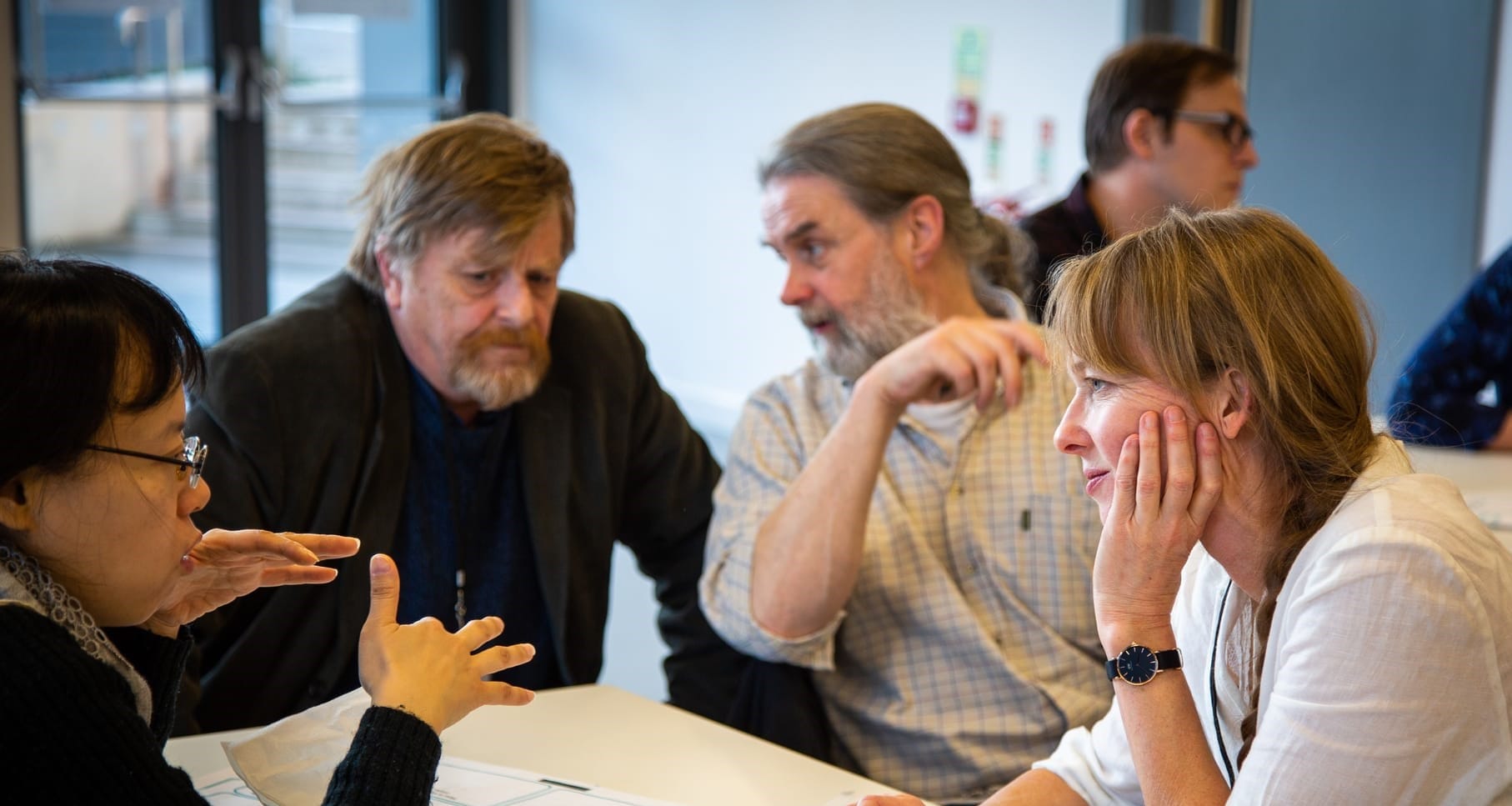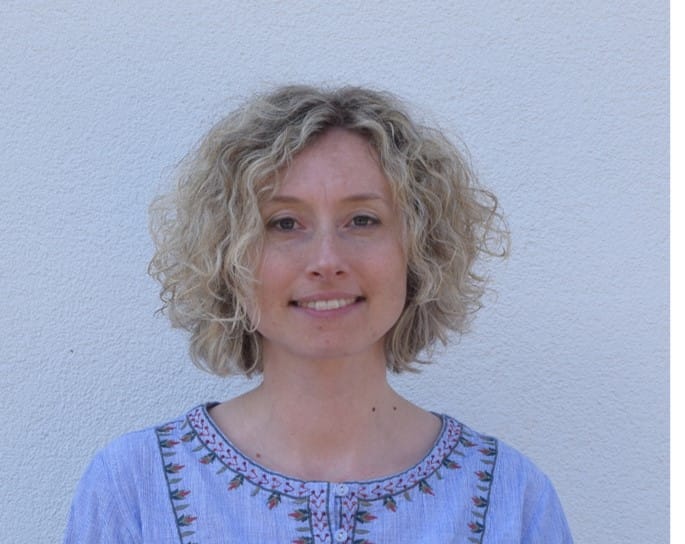
Cross-Sector Research Opportunities
NortHFutures is a people-powered research programme that provides opportunities for everyone to engage in digital health and health-tech initiatives.
We have £800,000 to allocate to research projects in the field of Digital Health, focusing on addressing regional unmet health and care needs, health inequalities, and digital exclusion.
Widening participation in research is at the heart of NortHFutures. We are especially interested in facilitating cross-sector research collaborations with Voluntary Community and Social Enterprise (VCSE) partners.
Research Themes
Our funding supports research across four key themes, each grounded in the health and care needs of our region:
- Promoting Health and Nutrition for Children and Young People
- Supporting Mental Health and Wellbeing
- Developing Digital Surgical Pathways
- Living and Ageing Well with Multiple Long-term Conditions
These themes broadly aim to support individuals in living well and thriving at every stage of life.
We have held all of our Research Workshops and teams are bidding for funding.
Some projects are still looking for additional expertise. To join a funding bid team, log in to the Catalyst website to see which projects need additional people and expertise. This will be updated over time, so keep logging in to see what is available. You do not need to have attended a workshop to do this. We cannot guarantee you can join a team, this will be based on the project bid team's discretion.
NortHFutures Research Themes
Developing Digital Surgical Pathways (NF/DIGISUR)
Workshop dates: 3 and 4 September 2024
Venue: The Catalyst, Newcastle Helix, Newcastle upon Tyne, NE4 5TG
The proportion of the population living with comorbidities who may be referred for surgery will be more susceptible to poorer outcomes. Digital solutions can enhance patient care, aid decision making and contribute to better surgical outcomes. These solutions, when developed with patient and public input, can also help address broader issues such as digital exclusion. Digital tools which support the delivery of the surgical pathway also need to be sustainable in terms of cost effectiveness and workforce acceptability.
A digital surgical pathway could encompass primary care contexts, making decisions on surgery, preparing to have an operation, intraoperative care (during the operation), and different kinds of care following an operation and after being discharged home and organising follow-up appointments and patient-reported outcomes from the surgery. Research on digital surgical pathways could explore contexts such as these, as well as other topics like: patient perceptions, experiences and involvement; workforce issues; and digital inclusion.
The Theme Leads are: Tim Donovan (University of Cumbria) & Yitka Graham (University of Sunderland).
Find out more about the Developing Digital Surgical Pathways theme in the downloadable PDF:
Living and Ageing Well with Multiple Long-term Conditions (NF/MLTC)
Workshop dates: 12 and 13 September 2024
Venue: Sjøvoll Centre, Framwellgate School Durham, Newton Dr; Durham; DH1 5BQ
One-third of the global population is estimated to be living with two or more long-term health conditions, commonly termed multimorbidity. In the UK, multimorbidity has been described as the greatest clinical challenge facing the National Health Service and social care sector. The North-East of England consistently faces challenges in this area. Despite the quality of our health and care services being rated amongst some of the best in England, the NENC still has some unsatisfactory health outcomes.
Research on living and ageing with long-term conditions aims to support early-stage research to inform the development of effective health and care interventions. Proposals could focus on but are not limited to: Developing a deeper real-world understanding of this topic, including evidencing unmet needs; prototyping solutions for supportive systems and services; and delivering actionable outcomes or evidence-based recommendations for improving healthcare practices, social support systems and policy approaches for this relevant populations.
The Theme Leads are: Alan Godfrey (Northumbria University), Hubert Shum (Durham University) & Katie Brittain (Newcastle University)
Find out more about the Living and Ageing Well with Multiple Long Term Conditions theme in the downloadable PDF:
Promoting Health and Nutrition for Children & Young People (NF/CYP)
Workshop dates: 17 and 18 September 2024
Venue: Carlisle Youth Zone, Victoria Pl, Carlisle CA1 1LR
There is an urgency to address persistent health inequalities in our region, yet health outcomes are demonstrably poorer on average than in the rest of England. Lifespans are shorter in our region, with a larger proportion of lives lived in poor health, including children and young people (CYP), and with under-resourced populations less likely to make healthy lifestyle choices. This evidence motivates research to explore how to provide for CYP to thrive and have better chances.
Research may explore how health and nutrition patterns early in life helps to shape effective interventions. By focusing on CYP, we can improve overall population health and prevent health issues from escalating later in adulthood.
Research may also inform strategies to reduce health inequalities; by identifying vulnerable groups and addressing their specific needs, we can create a more equitable health landscape.
The Theme Leads are: Niina Kolehmainen & Bernard Corfe (Newcastle University).
Find out more about the Promoting Health and Nutrition in Children and Young People theme in the downloadable PDF:
Supporting Mental Health and Wellbeing (NF/MH)
Workshop dates: 2 and 3 October 2024
Venue: Recovery College Collective, No 1 Carliol Square, Newcastle upon Tyne NE1 6UF
Mental health and wellbeing are critical aspects of individual and community life. Supporting mental health and wellbeing contribute to a person’s quality of life, enhancing longevity, and reducing risk factors linked to physical health. Poor mental health and wellbeing have an economic cost and are linked to reduced productivity and increased engagement with health and social care services.
Research will focus on addressing the mental health and wellbeing of individuals and communities in the NENC region, which includes some of the most deprived areas in England. Mental health became a global concern during the COVID-19 pandemic, but it has recovered more quickly in the rest of the country compared to our region. In NENC we have relatively greater mental health challenges including anxiety and depression, proportionate to the UK population. Research may explore new opportunities for innovation that support individuals to live well and happy in the place and community that they live and work.
The Theme Leads are: Christopher Bull (Newcastle University), & John Young (Teesside University).
For more information about these cross-sector research funding opportunities, please contact: Jennifer.Wood@newcastle.ac.uk.
Find out more about the Mental Health and Wellbeing theme in the downloadable PDF:
Cross-sector research opportunities team
This work is being led by John Young (Teesside University), Yitka Graham (University of Sunderland), Alan Godfrey (Northumbria University),Tim Donovan (University of Cumbria), Niina Kolehmainen (Newcastle University), and Hubert Shum (Durham University).
Supported by: Abigail Durrant, Jennifer Wood, Silvia Del-Din, Bernard Corfe, Katie Brittain and Chris Bull (Newcastle University).
Posts














